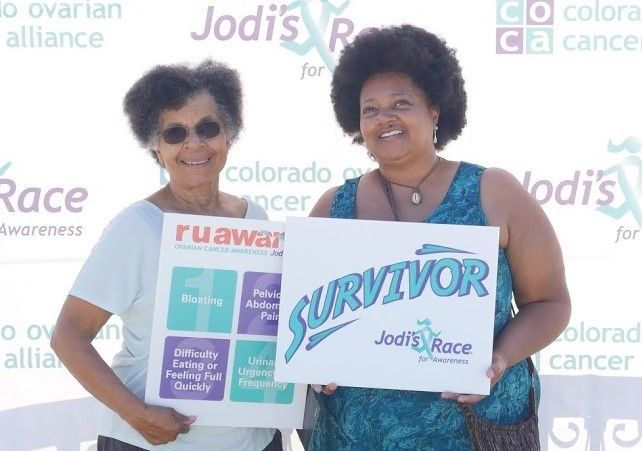Discussing Treatment
Talking to Kids (Ages 15 and Under)
When to tell:
Usually, it takes more time to find out your exact treatment plan and how it is going to affect your everyday life. After explaining your diagnosis to your child, break down your treatment process, so they’re not left asking, “What’s next?”
What to say:
Merely address that “treatment is how mommy will get better.” Then, consider discussing new terms like chemotherapy, surgery, and other simple medical topics, so they have a better grasp on what treatment exactly stands for. Also, again, younger children will want to understand how this might affect their day-to-day schedule so prepare for a plan. Here are some techniques to consider:
- Children might become worried about how the treatment process might interfere with routine activities like soccer practice or after school activities. Setting goals and having a treatment schedule will prepare you to answer these questions and alleviate some of the worries from your child.
- Emphasize that his/her questions are essential to you so that they feel more comfortable to be open.
- The most significant discussion with your kids is preparing them for treatment side effects. Watching a loved one who experiences physical changes can be very upsetting for younger children.
- Express exactly what might come along with chemotherapy or surgery including hair loss, nausea, and weight loss.
- If children understand that chemotherapy side effects are a part of the treatment and not the illness, they will have an easier time dealing with your treatment.
- For younger children, you do not have to describe and go into detail about the side effects but making them aware of these changes before they begin will help them handle the situation better.
- This is a very difficult process for all family members but reassuring your children that you or another loved one is prepared for these changes will show them the support and love they need during this challenging time.
Talking to Teens (Ages 15-20)
When to tell:
Again, with teens, it is important to wait to discuss the treatment until all the facts are understood, and you are prepared to answer questions. But, it is always better to explain the treatment side effects sooner rather than later. Find a time when your teen has relatively fewer things to do on their schedule. Bombarding them with treatment news while they have a lot going on with school, friends, etc. might trigger them to feel anxiety or even helpless.
What to say:
Most teens have a basic understanding that chemotherapy is associated with having cancer. However, because the side effects could be severe teens might not understand that chemotherapy is a solution rather than a problem. So explain what chemotherapy is in detail, so they have a full understanding that it is designed to take the cancer away. Here are some things to address when talking to teens about the treatment:
- Like younger kids, teens might also want to know how the treatment is going to affect their lives outside of the home.
- They might not address this concern because they don’t want to hurt your feelings or make you feel bad. So, have a treatment plan ready so you can reassure them that they will be taken care of.
- Also, introduce treatment terms and thoroughly explain what will happen to you when you go through the treatment process.
- For teens, they might have more questions about how these changes will affect your mood and mental state. Be sure to provide places and different resources where they can find more information if they please. COCA’s Resource Guide is a great tool to get started and to find more information in the community.
- Some teens do not want to be involved in the caregiving process of a loved one with cancer. Going to hospital visits and seeing the facility might be too much emotionally for your teen. Respect their wishes and implement other ways that they can be helpful without having to see the medical side of the treatment.
- On the other hand, some teens might want to be there every step of the way! Allow them to assist you and help you so that they can have some sense of control on the situation. COCA’s Resource Guide offers places where your teen can reference areas of support including, treatment remedies like wig studios and boutiques to finding oncologists in the community.
- Throughout this process show your teen love and support and reassure him/her that you are always there when he/she needs to talk.
Talking to Adult Children (Ages 20 and Up)
When to tell:
Talk to your adult children before finding out all the details of your treatment. Don’t be afraid to ask your adult child about any questions or concerns regarding your treatment plan. Once they understand and help you know the extent of your treatment they will be able to help you prepare. Talk to them about your treatment and let them know your thoughts and wishes about your treatment and care.
What to say:
It varies from person to person, but some might want to be more involved than others with the treatment process. Of course, children want to express love and support, but some adult children might have a tougher time coping with the medical side of cancer. Allow them to show how they feel about the treatment and let them help in a way that works best for them. Here are some tips while talking to your adult children about your treatment:
- Allow your child to process the treatment information before asking him/her to help out with scheduling, visits, and caregiving.
- Work together to arrange family meetings so everyone can pitch in and help support you through this journey.
- Utilize scheduling apps like Lotsa Helping Hands and Help for Cancer Caregivers found in COCA’s Resource Guide on page 39.
- These apps and online resources help connect you to family members and people in the community to update each other on treatment and medical information.
- Ask your adult children if they feel comfortable tagging along on hospital visits so that they can further understand exactly what the treatment entails.
- Taking your adult child with you on visits with the doctor might allow him/her to help you process the information better.
- Let them know your thoughts and wishes about your treatment and care.
- Unlike talking to young children, adult children have a better understanding of the situation and therefore, might feel more responsible for taking on the caregiver role.
- Make sure you are recognizing your child’s well-being and following up with any questions and concerns.




